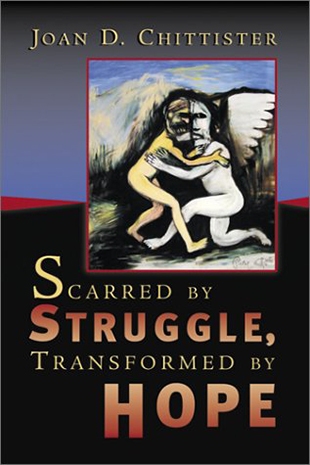Joan Chittister, bestselling author, internationally known speaker, and the executive director of Benetvision: A Resource and Research Center for Contemporary Spirituality, begins this sturdy work with a confession:
"This is the book I didn't want to write. It is certainly the book I did not intend to write. My original plan was that I would write a book about hope. It is, after all, a particularly unpredictable and often difficult period in human existence. It seemed to me that hope is the central virtue in life, certainly needed and so easy to explain. But it didn't work. Everywhere I looked, hope existed — but only as some kind of green shoot in the mist of struggle. It was a theological concept, not a spiritual practice. Hope, I began to realize, was not a state of life. It was at best a gift of life. . . . The more I struggled with the idea of hope, the more I began to realize that it is almost impossible to write a real book about hope without looking at the nature of struggle. Where in pain does hope lie? And how do we cultivate it? And what does it mean to the development of the spiritual life and the attainment of emotional wholeness?"
Chittister names some of the struggles that have tested her resilience — losing a parent at an early age and coping with teenage polio. In succeeding chapters she reveals how we all are challenged by change, isolation, darkness, fear, powerlessness, vulnerability, and exhaustion. But, like Jacob, we can gain new insights and meaning from these struggles, especially from the ones that scar us.
We liked Chittister's refusal to downplay the omnipresence of fear and futility in the culture at the present moment. As she puts it: "The great secret of life is how to survive struggle without succumbing to it, how to bear struggle without being defeated by it, how to come out of the struggle better than when we found ourselves in the midst of it."
The gifts that can emerge from the ashes are conversion, faith, courage, surrender, limitations, endurance, and transformation. We were delighted to see her commentary on the important gift in the Christian tradition of "holy indifference," which is similar to the Buddhist practice of equanimity. In the closing chapter, Chittister rings the bell of hope and it sounds much more jubilant given all that we've heard before it. She concludes: "Struggle is the gift of new life in disguise... There is beauty in the dark valleys if life. It is called hope."
